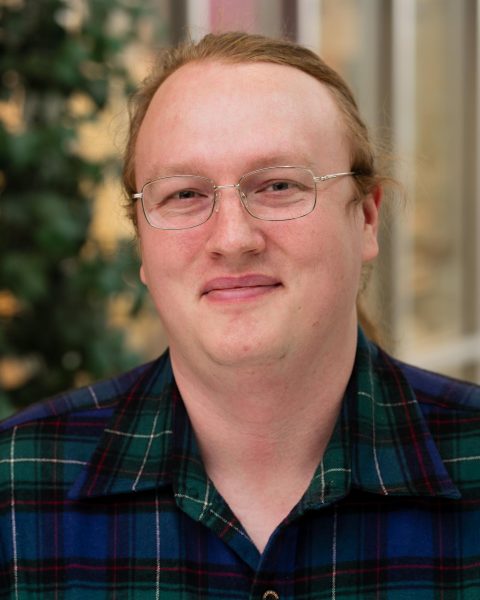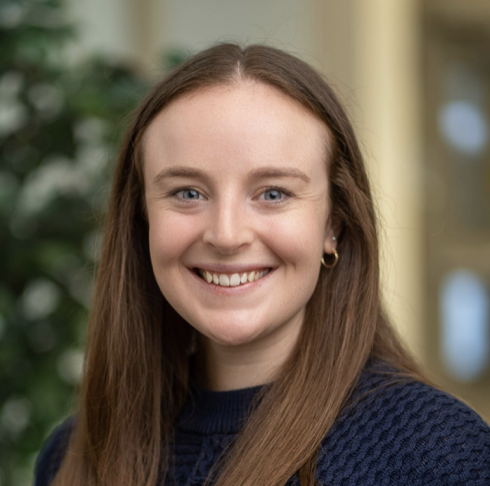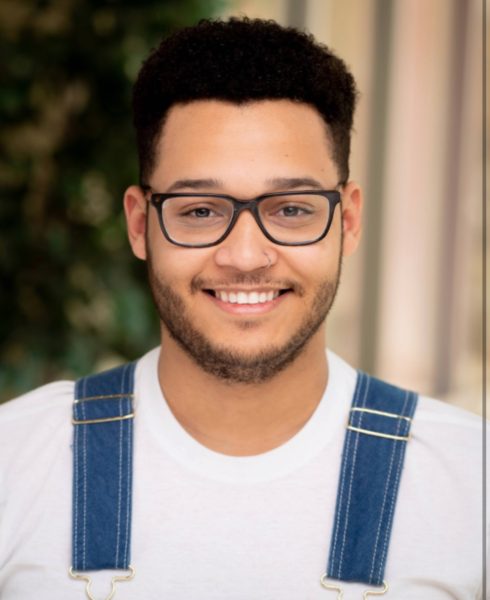Ethan Freedman: Taking on Sexual Assault One Conversation at a Time
Sophomore Ethan Freedman has been committed to changing the conversation about sex and intimacy for as long as he can remember. A double concentrator in women’s studies and psychology, Freedman seeks to understand where the stigmas around these topics stem from and deconstruct them in order to create a culture of sex that is more equal and safe for all people. Involved in a multitude of spaces devoted to doing so on campus — the Medusa Movement, Bystander Intervention at Shaw Wellness Institute, the Haven Ambassador Program and Yes Means Yes — Freedman has committed his time at Colgate to not only learning about tools to change the culture of sex on campus but also for his future.
Freedman traces his passion for sexual assault advocacy to his childhood. He shared that he grew up in an atmosphere where he was almost always in the presence of strong women who stressed the importance of healthy forms of relationships, intimacy, sex and talking about it openly. From Los Angeles, Freedman primarily lived with his mother and two brothers, watching in awe as his mother basically single-handedly raised three boys. A little later in his childhood, Freedman received a new addition to his household when his three cousins moved in with him, all of them women and older than him.
“It was five women raising me and my two brothers. … That’s kind of the short story of how I got here. They all just normalized all of these conversations around sex and intimacy and relationships and healthy relationships,” he shared.
Freedman began pursuing his passion for discussions about sex and intimacy in high school, joining a peer counseling group where he hosted panels and conversations about these topics in addition to bullying, consent, harassment and sex education. These experiences further opened his eyes to his attraction to advocacy work against sexual assault along with providing open and safe environments where people could discuss their feelings about such subjects.
“Advocacy has always been a passion. It’s always been something I’m good at. … When I was a counselor, I just kind of realized that … people need this.”
When Freedman came to Colgate last year, he recognized the similar closed-mindedness around talking about sex, intimacy and relationships and immediately began to try to change it. Albeit limited in what he could do due to his decision to stay remote the first semester of his first year, Freedman began working towards this goal by joining the Medusa Movement, which was created in the wake of the exposure of sexual assault incidents happening on campus in the fall of 2020 and before. When he came to campus the following semester, he applied to join the Shaw Wellness Institute to be a Bystander Facilitator. After taking a mandated six week course, Freedman not only became enlightened about the specifics of Colgate’s sex and intimacy culture, but also learned the tools to begin opening up discussions about these topics. He also began to realize the complexities of being a part of a movement that seeks to make the campus a safer place for people to engage in sexual intimacy and relationships.
“I learned all about the resources on campus. I learned how to sit down with people and be an active listener … and validate … as well as … create a space for people where they not only feel safe in talking but where they’re actually safe,” he remarked. “It’s easy to make somebody feel safe. It’s hard to actually help them be safe.”
As a Bystander Intervention Facilitator, Freedman leads presentations that teach Colgate’s students how to engage in all forms of relationships in a healthy and safe manner. He teaches Bystander 1.0, which all students are required to take during their first year, along with Bystander 2.0, which is open to all sophomores, juniors and seniors. According to Freedman, these conversations educate students about how they can be active bystanders in situations of sexual harassment and assault, and presents intervention techniques that can be used in problematic situations. The course also covers related topics like rape culture, consent and the way in which alcohol and drugs complicate these situations.
“Basically, we talk about rape culture here on college campuses, and how Colgate is not immune to that,” he shared. “It’s hidden, and it goes beyond … the Jug and it goes beyond Greek Life, entering within our own campus.”
Freedman’s experiences as a Bystander Facilitator and member of the Medusa Movement impacted his academic journey here at Colgate. Freedman entered Colgate thinking he wanted to major in something STEM-related and pursue the pre-med track because he knew he wanted a career helping people. However, as he increasingly devoted his time to these sexual assault advocacy groups, Freedman realized his desire to pursue a college education in fields related to this work and, eventually, a professional career in this area.
“Last semester, I had one of those moments, like what am I doing? Why am I taking pre-med?” he reminisced. “It’s not what I’m good at. It’s not what I love. So I dropped it … to major in women’s studies and psychology. I just noticed that this world wasn’t built for everybody … and I wish it was constructed for everybody.”
Freedman is also a Haven Ambassador and Facilitator for the group’s course, Yes Means Yes. Taught by students who have already taken the seven week course, Yes Means Yes is a comprehensive sexual education course open to all students that covers topics ranging from intimacy and relationships, to pleasure and masturbation, to rape culture and consent. Given the conversation and student-led nature of these meetings, Freedman enjoys his work at Yes Means Yes and views it as one of the most constructive programs for sexual assault and harassment prevention on campus, as it provides people with a platform to discuss these typically taboo topics in an open and safe environment.
“Once you get a lot of college students who actually want to be a part of the conversation … they start sharing their lives,” he emphasized. “We all go to Colgate, [so] intimacy-wise, we’re all in the same place, function[ing] with all these different levels and forms of intimacy, and likes and dislikes. Creating a space to talk about that is really fun.”
Freedman perceives the stigma around talking about sex, rape and intimacy as one of the primary factors enabling sexual harassment and assault instances not only at Colgate but also in the U.S. in general. In order to truly begin fighting these issues, Freedman believes that we must be able to discuss them overtly and without judgment in order to eliminate many of the misconceptions and prejudices that are used to rationalize instances of sexual misconduct. By being a part of programs that seek to facilitate such a space for people to have conversations about these topics openly on campus, Freedman hopes to help others change their mindset around sex and intimacy in order to make these experiences more safe and pleasurable for everyone.
“Sex is really taboo in this culture,” he said. “Even here, on Colgate[‘s] campus … a place that is so pervasive when it comes to hookup culture … nobody is willing to talk about the fact that some people are not having the intimacy that they want to have. … It’s so centered around one form of pleasure.”
Freedman also realizes that attempting to change rape culture is not something that he, along with other Bystander Facilitators and Haven Ambassadors, can do on his own. Combatting sexual misconduct at Colgate requires the active engagement of all students in programs like Bystander training and Yes Means Yes, along with a collective effort to begin changing the culture of sex, intimacy and relationships on campus, according to Freedman.
“Overall … we have a big problem on this campus. … As long as people are walking away with the feeling that they’re … being used or that they’ve even been sexually assaulted, there’s still more work to do. … And it’s not just in Greek Life organizations, or the Jug, it’s everywhere,” he said.
Freedman plans to continue pursuing his passion for sexual assault and harassment advocacy after he graduates. He has already been pursuing this interest professionally by joining an ethical porn production company called Afterglow Afterlove. Recognizing the way in which people, especially adolescents and young adults, utilize porn as an educational resource for sex and relationships, Afterglow Afterlove attempts to remove the male gaze and sexism in much of its conventional content. By creating porn that depicts sex and pleasure in a way that is equal and respectful of both parties, the production company hopes to uproot some of the conceptions about intimacy that contribute to rape culture.
“Porn can be conducive to teaching people that they are the subjects of their pleasure, not objects of somebody else’s. If porn is depicting imagery, where it’s … for the male gaze, and … for men, then women are learning about sex with the intention that it’s not for them. … Sex is for everybody. … So is pleasure. Everyone deserves it,” Freedman shared.
Freedman will be working as an intern with the head of content for Afterglow Afterlove for the foreseeable future. In this role, he will be mainly helping generate newer content for the platform.








